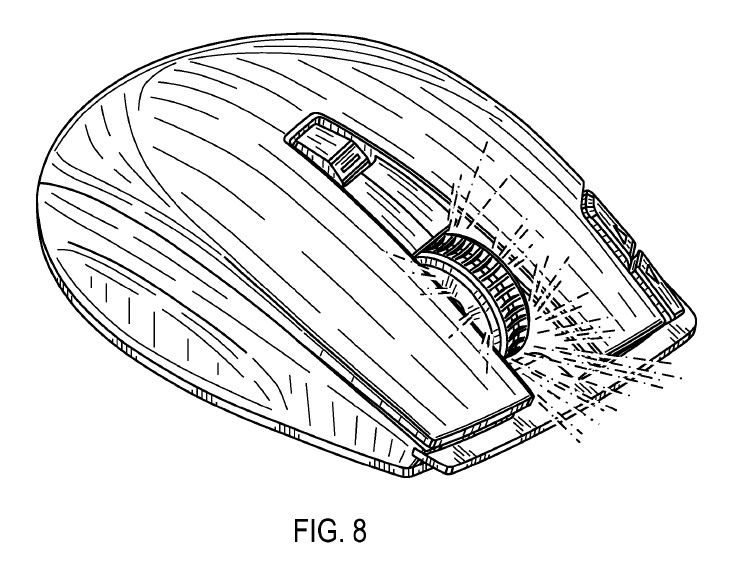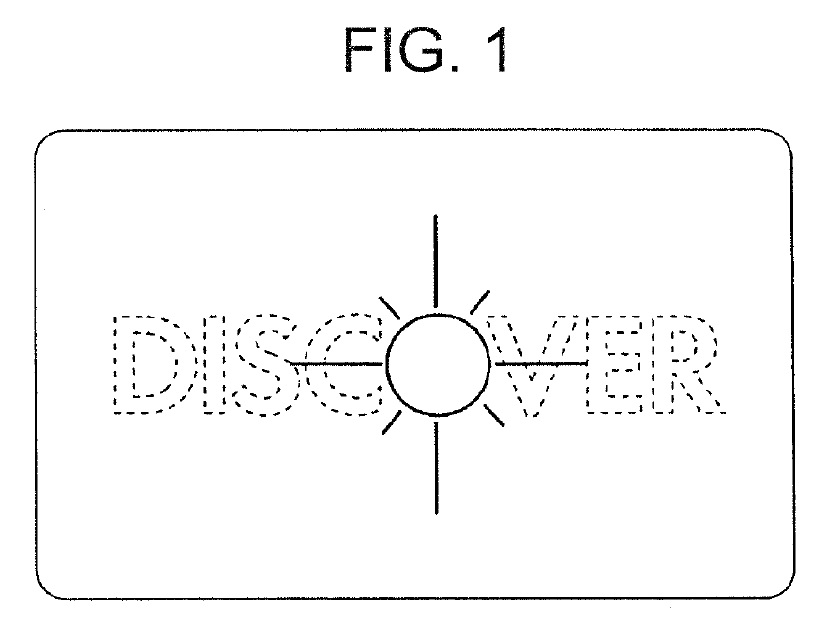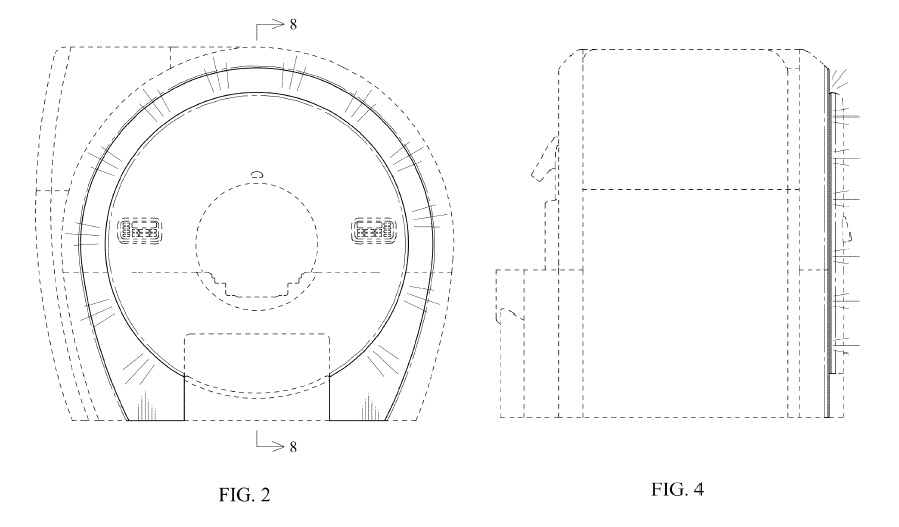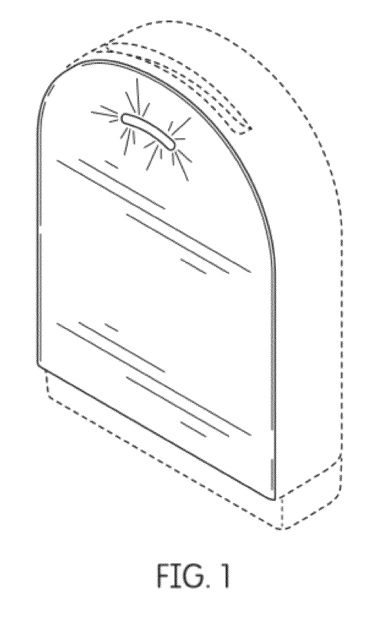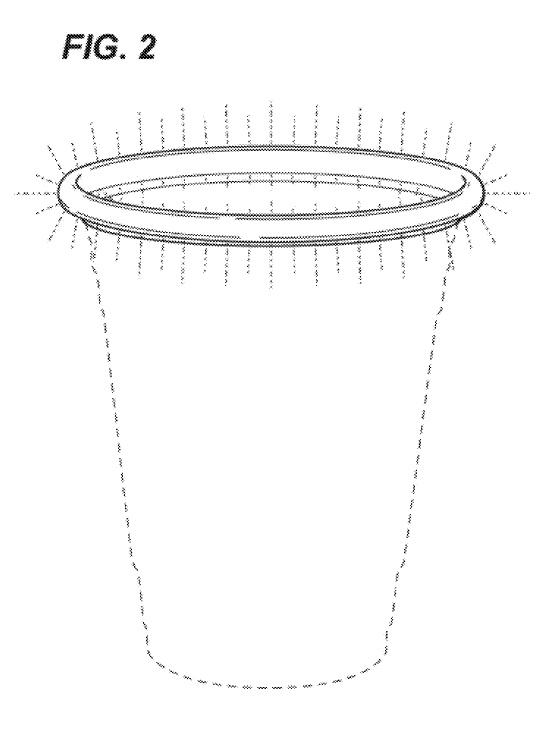Design patents protect the aesthetic appearance of a product or portion of the product. The aesthetic appearance is affected by a number of things, including whether the product is illuminated. However, how does one capture in the USPTO’s preferred black and white line drawings that fact that some or all of the design is illuminated? Pretty much the way you would think. Take, for example, U.S. Patent No. D688245 on a Contoured Mouse, which illustrates illumination with a burst of radiating dashed lines:
the patent explains that the “dash-dot-dash lines shown in Fig 8 represent the illumination at the finger wheel and these lines form no part of the claimed design.” This same technique was used in U.S. Patent No. D688,664, also on a contoured mouse.
Discover Financial Service used a similar technique to illustrate an illuminated portion on their Discover Card in U.S. Patent No. D685419:
The patent explaining that “The circle is the boundary of the illuminated portion. The radiating lines illustrate the glow of the illumination.” Radiating lines were also used to indicate illumination on an MR scanner in U.S. Patent No. D682,026:
Still other examples include: an electronic data module with illuminated region in U.S. Patent No. D670696:
An illuminated cup rim in U.S. Patent No. D670419:
Illumination can be claimed in a design patent, it is simply a matter of illustrating the illumination in the drawings, and describing the drawings properly.

